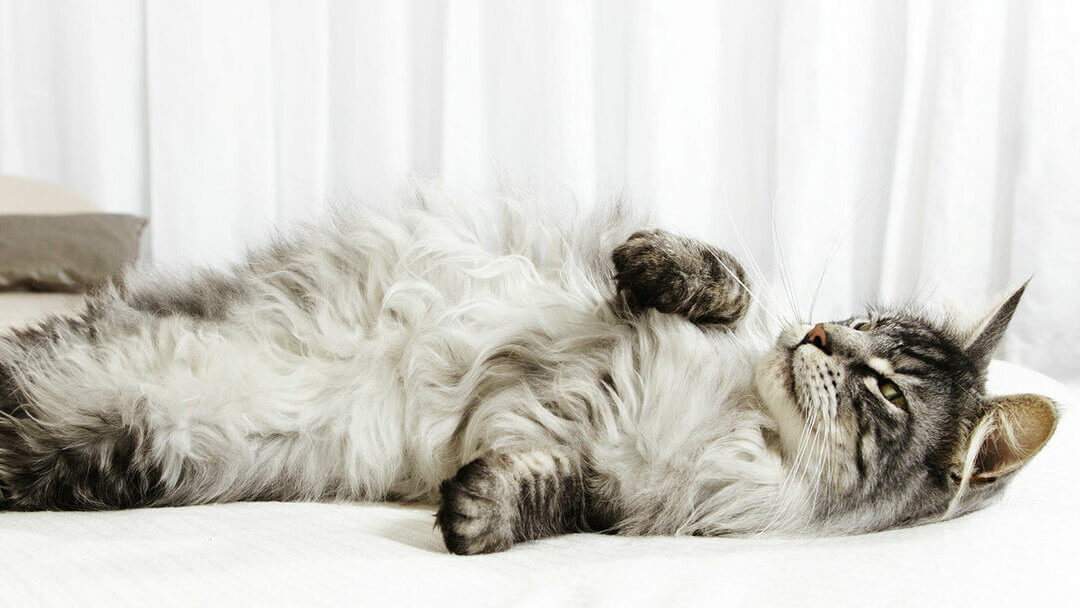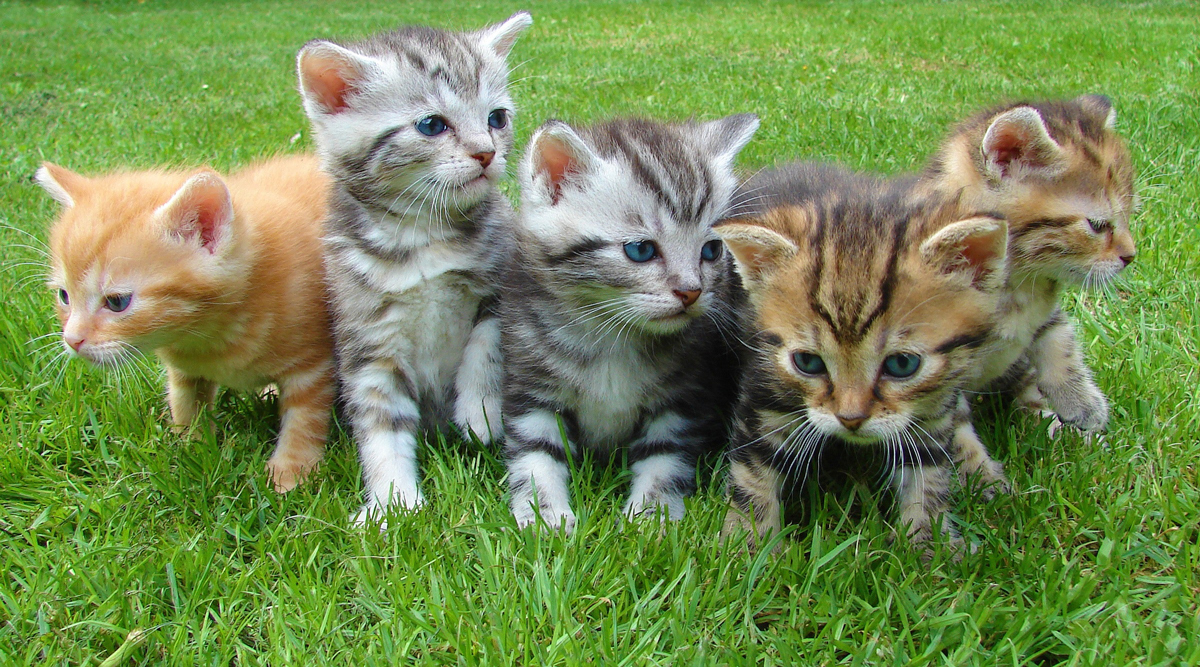To determine if your cat is pregnant, look for physical signs such as swelling abdomen and nipples, increased appetite, and changes in behavior. When a cat is pregnant, its body goes through noticeable changes, making it possible to identify the pregnancy through visual and behavioral cues.
Physical changes include a visibly swollen abdomen and prominent nipples, which may appear over 20 days into the pregnancy. Pregnant cats also experience an increase in appetite and may become more affectionate or exhibit nesting behaviors. By observing these signs, you can determine if your cat is expecting and provide appropriate care during this special time.

How to Tell If My Cat is Pregnant?
Determining if your cat is pregnant can be challenging, especially during the early stages of pregnancy when physical changes are subtle. However, there are several signs and behaviors you can observe that may indicate your cat is pregnant. Here’s how to tell if your cat is pregnant:
-
Changes in Appetite: Some pregnant cats may experience changes in their appetite. They may eat more or less than usual. Keep an eye on your cat’s eating habits for any noticeable differences.
-
Nipple Changes: A pregnant cat’s nipples can undergo changes as early as two to three weeks into pregnancy. They may become more prominent, enlarge in size, and change color to a pinkish or reddish hue.
-
Abdominal Enlargement: As the pregnancy progresses, you may notice your cat’s abdomen becoming larger and more rounded. This change is typically more noticeable during the second half of pregnancy.
-
Weight Gain: Pregnant cats generally gain weight as their pregnancy advances. If you’re monitoring your cat’s weight, you may notice a gradual increase over several weeks.
-
Increased Affection: Some pregnant cats become more affectionate and seek more attention from their owners. However, this can vary from cat to cat, as personality differences play a role.
-
Behavioral Changes: Look for changes in your cat’s behavior, such as restlessness, nesting behavior (seeking out quiet, secluded spots), or increased vocalization.
-
Morning Sickness: Just like humans, some pregnant cats may experience morning sickness. They may vomit occasionally during the early stages of pregnancy.
-
Palpation by a Veterinarian: A veterinarian can perform a physical examination to feel for the presence of developing fetuses in your cat’s abdomen. This is typically done around three to four weeks into pregnancy.
-
Ultrasound or X-rays: Your veterinarian can also use ultrasound or X-rays to confirm pregnancy and estimate the number of kittens. Ultrasound is typically used earlier in pregnancy, while X-rays are more accurate later on.
-
Heat Cycle Cessation: If your cat was in heat (estrus) but her heat cycle suddenly stops, it may be a sign of pregnancy. Cats in estrus typically go into heat every two to three weeks if not bred.
Remember that the signs of pregnancy can vary among individual cats, and some cats may not exhibit all of these symptoms. If you suspect your cat is pregnant or are unsure, it’s essential to consult with a veterinarian for confirmation and guidance on prenatal care. A veterinarian can also provide advice on nutrition, vaccinations, and preparing for the arrival of kittens, ensuring a healthy pregnancy and safe delivery for your cat.
Physical Changes In Appearance
Determining if your cat is pregnant involves observing physical changes in appearance. One noticeable change is enlarged and darkened nipples. Another is a swollen abdomen, which becomes more noticeable as the pregnancy progresses. Weight gain is also common during pregnancy.
It’s important to monitor these physical changes to confirm if your cat is indeed pregnant.
Behavioral Changes
A pregnant cat may exhibit various behavioral changes that can help determine if she is expecting. One common sign is increased affection towards her owner. She may seek more attention, purr frequently, or become more cuddly than usual. Restlessness is another behavioral change seen in pregnant cats.
She may pace around, have difficulty settling, or appear more anxious. Nesting behavior is also observed in pregnant cats as they prepare for the arrival of their kittens. They may start searching for a comfortable spot to build a nest and may use soft materials to create it.
By observing these behavioral changes, cat owners can get an idea if their feline companion is pregnant and prepare for the upcoming arrival of the kittens.
Signs Of Changes In Appetite And Litter Box Behavior
Cats that are pregnant may exhibit changes in appetite. They might eat less than usual. Pregnant cats might also experience a need to urinate more frequently. This could be due to hormonal changes in their bodies. Another sign to look out for is litter box avoidance.
Pregnant cats may start to avoid their usual litter box, seeking out alternative places to relieve themselves. These signs can be early indicators of pregnancy in cats, but it’s always best to consult with a veterinarian for confirmation and proper guidance.
Regular veterinary care is important during this time to ensure a healthy pregnancy for your cat and her kittens. By observing changes in appetite and litter box behavior, you can have a better idea if your cat is expecting.
Frequently Asked Questions On How To Tell If My Cat Is Pregnant
How Can I Tell If My Cat Is Pregnant?
If you suspect your cat might be pregnant, look for physical changes such as nipple enlargement, weight gain, and increased appetite. Also, watch for behavioral changes like nesting behavior and increased affection. However, the only way to be certain is through a visit to the vet for a professional examination.
How Long Is A Cat’S Gestation Period?
A cat’s gestation period typically lasts around 63 to 65 days. However, it is important to note that individual cats may vary. To get a more accurate estimation, consult with your veterinarian who can assess your cat’s specific circumstances.
Can I Do Anything To Help My Pregnant Cat?
You can support your pregnant cat by providing a comfortable and quiet space for her to nest. Additionally, ensure she has a balanced diet that includes high-quality kitten food and consult with your vet regarding any necessary prenatal care or supplements.
When Should I Expect Kittens To Be Born After Mating?
After mating, you can expect kittens to be born approximately 60 to 70 days later. Factors such as the female cat’s health, age, and individual traits can affect the exact duration of the pregnancy. Regular veterinary check-ups can help monitor the progress of the pregnancy.
Conclusion
Keeping an eye out for the symptoms mentioned will help you determine if your cat is pregnant. Remember, the most obvious sign is a swollen belly, but there are other signs to look out for, such as changes in behavior and appetite.
It’s important to take your cat to the vet to confirm her pregnancy and ensure she receives the necessary care. Throughout her pregnancy, provide her with a comfortable and quiet space to nest and prepare for the arrival of her kittens.
Providing proper nutrition and keeping stress levels low will contribute to the overall health of both your cat and her unborn kittens. By following these guidelines and seeking veterinary guidance, you can become a responsible and caring owner during this exciting phase of your cat’s life.



